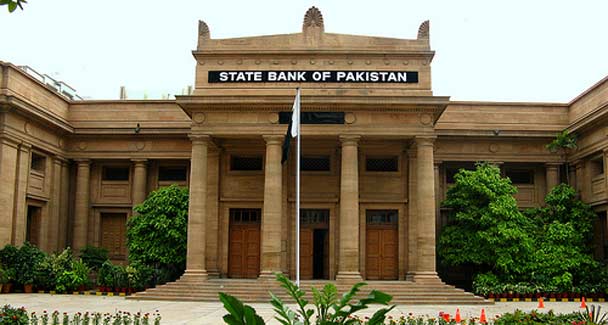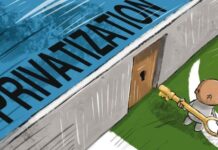
LAHORE: The central bank on Thursday cautioned against the risks of financial vulnerability during the second half of the current financial year 2018-19, mainly coming from rising external and fiscal pressures on the economy.
According to the results of the second wave of State Bank of Pakistan’s System Risk Survey, the banking sectors’ profitability would be contingent upon interest rate dynamics, banks’ investment strategy, movement in foreign exchange, capital markets and demand for advances.
However, SBP said, “The outlook for the banking sector remains stable supported by an upswing in economic activity, improvement in investor confidence and the political stability.”
Moreover, as per the SBP half-yearly performance of the banking sector indicated that macro-financial conditions are expected to remain during the second half of current year 2018.
Also, the external sector pressures, fiscal sector vulnerabilities, rising domestic inflation and unstable commodity markets could prospectively weaken financial stability over the forthcoming six months.
However, the SBP report remains optimistic regarding the appetite for bank loans due to seasonal factors, capacity enhancement and a boost in investors’ confidence.
But the report cautioned that rising inflationary pressures due to increasing aggregate demand and expected bullish trend in global prices could translate into higher demand for working capital financing needs.
The central bank said, “increase in SBP policy rate by 100 bps in July-2018 and rising global trade disputes, could moderate the demand for advances.”
It added, “Banks’ investment may possibly remain concentrated in short-term government securities given the interest rate expectations.”
SBP said the investment of banks in government securities could be stimulated due to the higher projected reliance on banks’ borrowing by the government as mentioned in the fiscal budget for FY 2018-19.
The report said if the governments’ announced measures result into fiscal consolidation, then budgetary borrowings from banks could decrease.
“Deposit inflow will depend upon banks business strategy and savers preferences that are driven by macroeconomic conditions (external account pressures, monetary policy stance, and return on alternate assets etc.),” said SBP.
It said a rising minimum saving rate could boost saving deposits but moving forward the banking sectors’ profitability would be contingent upon interest rate dynamics, demand for advances, bank’s investment strategy and movement in foreign exchange and capital markets.
“Asset quality is likely to improve as the expected increase in advances and the seasonal decline in NPLs related to agriculture financing materializes. However, a rise in SBP’s policy rate may impact the borrowers’ repayment capacity,” said the report.






